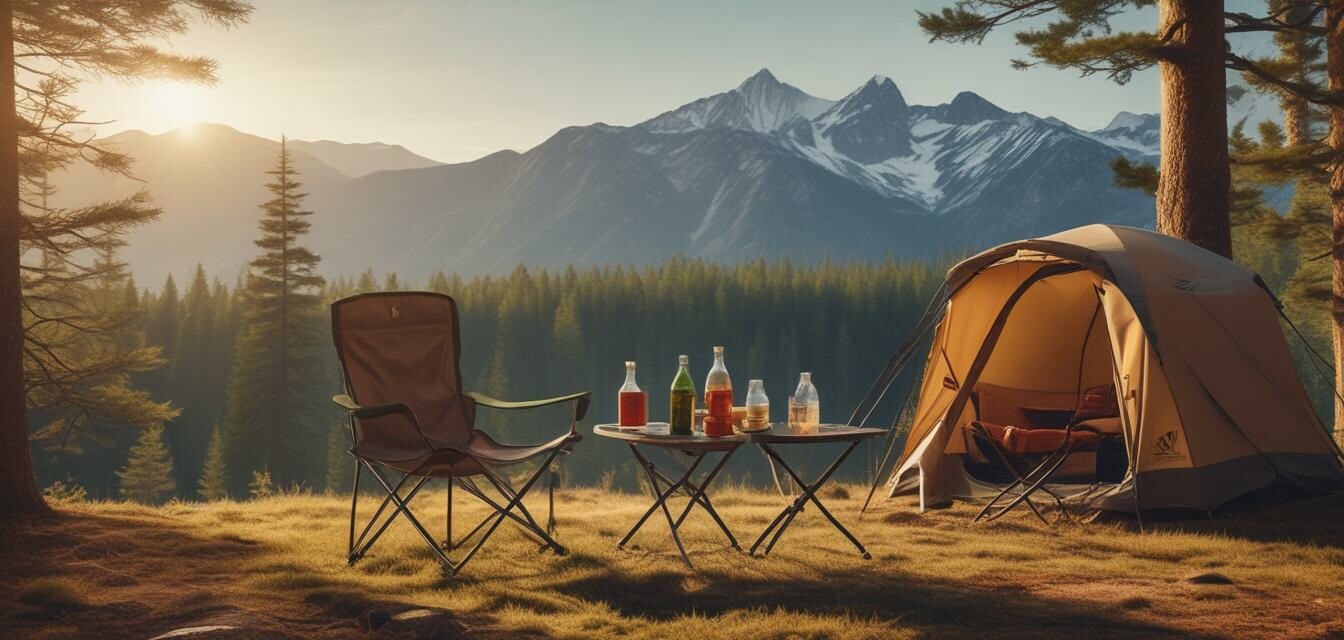
As an Amazon Associate, I earn from any qualifying purchases, at No Extra Cost to You.
The Evolution of Camping Furniture
- The shift from bulky, heavy furniture to lightweight, portable designs has transformed camping experiences.
- Modern materials have improved durability and comfort, catering to the evolving needs of backpackers.
- Innovative designs incorporate functionality and versatility for multi-use applications.
- Sustainability practices are gaining traction, influencing product development in camping furniture.
- Convenience features like easy setup and lightweight construction enhance the overall camping experience.
Camping furniture has come a long way from the traditional heavy benches and wooden tables. With an increasing number of outdoor enthusiasts seeking comfort without sacrificing portability, the evolution of camping furniture reflects the changing demands of modern backpackers. In this article, we will delve into how camping chairs, tables, and other furniture have adapted over the years to enhance our outdoor experiences.
A brief history of camping furniture
Camping furniture has roots that stretch back generations. Traditionally, camping furniture was designed for sturdiness, often at the cost of portability. Below is a timeline detailing the evolution of significant camping furniture trends:
| Era | Key Features | Common Materials | Typical Designs |
|---|---|---|---|
| Pre-1900s | Heavy, bulky items | Wood, metal | Logs, simple benches |
| 1900-1950 | Introduction of folding designs | Aluminum, canvas | Folding chairs, camp cots |
| 1950-1980 | Lightweight designs emerged | Plastic, lighter metals | Portable tables, inflatable items |
| 1980-Present | Focus on multifunctionality and comfort | Carbon fiber, advanced polymers | Compact, ergonomic furniture |
Modern needs for camping furniture
As the backpacking community grows, so do the needs for modern camping furniture. Here are some key aspects of how these needs have influenced design:
- Portability: Lightweight materials and compact designs make transporting furniture easier.
- Comfort: Ergonomically designed chairs and tables improve the camping experience, allowing for longer relaxation times.
- Durability: The use of weather-resistant materials ensures longevity, even in rough outdoor conditions.
- Multi-functionality: Many modern furniture pieces serve multiple purposes, saving space in backpacks.
Innovations in camping furniture design
Today, we see a range of innovations that set modern camping furniture apart:
Pros
- Lightweight and easily transportable items available.
- Enhanced comfort through improved designs.
- Innovative materials reduce weight without compromising strength.
- Versatile uses and multifunctional designs create diverse camping options.
- Sustainable practices promote eco-friendly products.
Cons
- Higher prices for high-quality, lightweight furniture.
- Some designs may prioritize compactness over comfort.
- Quality can vary widely across brands.
Popular types of modern camping furniture
Here’s a quick overview of popular camping furniture types you may consider for your next backpacking adventure:
| Furniture Type | Weight | Price Range | Best Use |
|---|---|---|---|
| Camping Chairs | 1-5 lbs | $30-$150 | Relaxation, lounging |
| Portable Tables | 5-15 lbs | $40-$200 | Food preparation, dining |
| Sleeping Pads | 1-3 lbs | $20-$150 | Comfort while sleeping |
| Cots | 10-20 lbs | $50-$300 | Elevated sleeping |
| Hammocks | 1-3 lbs | $20-$200 | Relaxation, camping |
Sustainability in camping furniture
With increasing awareness about environmental issues, many camping furniture brands are making strides in sustainability. Here are some practices that are gaining traction:
- Using recycled materials in product design.
- Implementing sustainable sourcing practices for materials.
- Designing products with longevity in mind, reducing waste.
- Incorporating biodegradable options into their lines.
Conclusion: The future of camping furniture
The evolution of camping furniture reflects the ever-changing landscape of the backpacking culture. With advancements in design, sustainability, and functionality, the future of camping furniture appears promising. Backpackers now have more options than ever to enjoy comfort and convenience in the great outdoors.
To learn more about essential gear for backpacking, check out our guides on backpacks, sleeping bags, and tents and shelters.
The evolution of camping furniture symbolizes our connection with nature and our desire for comfort, making every camping challenge an adventure worth embracing.
